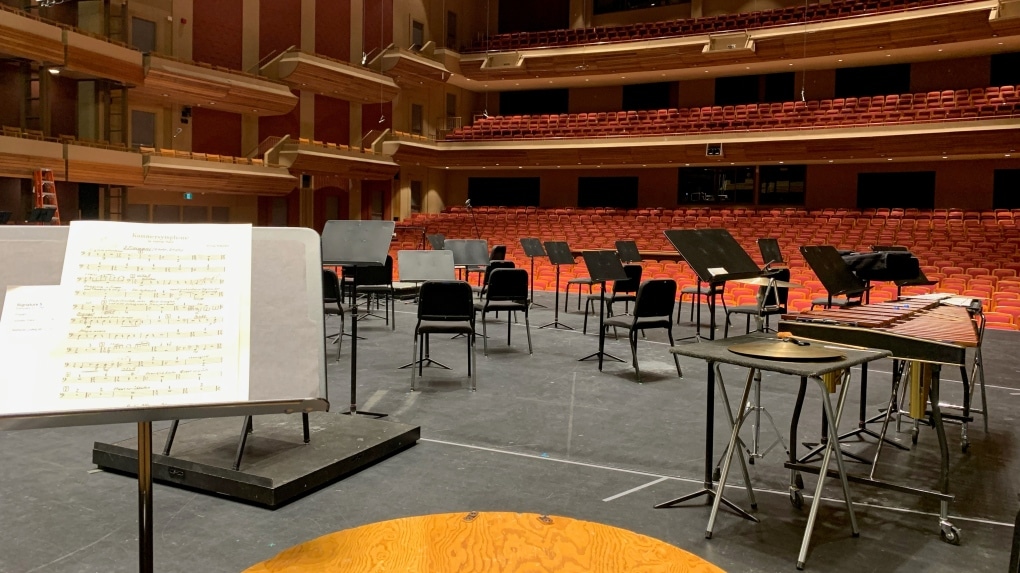Strange goings-on in the Cambridge cloisters
mainIt began with a press release early this week, informing me that a Latvian composer of considerable obscurity has been appointed Fellow Commoner in Creative Arts at Trinity College, Cambridge.
His name is ?riks Ešenvalds and his picture appears below.
The appointment is effectively that of composer in residence. Recent incumbents include Nicholas Maw, Judith Weir, Thomas Adès, Richard Causton and Tarik O’Regan, all fairly well known in Cambridge and around the UK.
So why Eriks?
It so happens that Stephen Layton, Trinity’s director of music, has just released a disc of his music on the Hyperion label. I guess they must get along quite well. Nothing wrong with that.
The choir on the Hyperion recording is Polyphony. Its agent, Paul Nicholson (he runs the group with his wife, Rachel Proud), has been hired as head of the music office at Trinity College. Nothing wrong with that, although some say the job was not advertised.
Trinity College has just built a recording studio in its chapel. Nothing wrong with that, either.
All of this is open, above board and a matter of public record if you care to delve deep enough. But something about it looks a bit cosy. And when Trinity next publishes its accounts there may be a few people who will look very carefully to see that all is as it should be.
As I am sure it is.





Far too cosy… But that’s how the world works I guess. It’s who you know…
It’s sad because it leaves a bad taste in the mouth at a very sensitive time.
Considering the arts world is in a rather stressful state over the funding cuts and the academic community is similarly nervous, this kind of behaviour is just terribly timed and does not reflect well on Layton or Trinity.
I’d like to think there’s a clear line blocking tax-payer orientated income, which is meant to go toward student tuition, from going anywhere near this little scheme which appears to only further Layton’s private career, his professional choir and a for-profit record company.
I thought, following the whole Brazil issue, we were supposed to be against the idea of competitive tender, of opening up jobs, or auditioning / evaluation; and all for the idea of talking nicely to those we know, working with those we have, and keeping the boys in a job. . .
@ NL – I’m not convinced by the suggestion that Trinity have “built a recording studio”. Bought some recording equipment, sure, (and so have many performing groups and arts organisations) but anything beyond that? No, not really.
@ John – why should arrangements which have been in place for some time be deemed in bad taste because of changing times now?
What says that tax-payer income – rather than general investment, endowment, and estates income (which surely forms the majority of Oxbridge College financial support) is implicated here? (and anyway, are you suggesting that having a composer in residence won’t benefit the students in any way? That having Stephen Layton coaching the students won’t be of benefit to them?).
And what is wrong with a “for profit” (not much of one!) record company? Would you prefer a not-for-profit-but-relies-on-taxpayer-funding record company?
[Of all record companies, Hyperion is surely to be admired for sticking to its guns to pursue artistic excellence; and they’ve never pursued the “easy money” cross-over market; and they look after their artists and others, I can assure you.]
@AVI The disclosure laws have changed with regard to Oxbridge Colleges – http://www.hefce.ac.uk/finance/charities/act/sector/cdo.asp – this came into effect in 2010 and will be reported for the first time in 2011. Everything at Trinity may well be above board, but if indeed an appointment was made to the College staff without an internal search, then there is a potential problem. One not in itself a major issue, but one which might highlight a deeper problem across many Oxbridge Colleges: nepotism (whch hitherto has just been a way of life, fine – but, as you say, times are changing).
From a musical status, as you say, there is a confluence of interest (which I agree, might be positive), however from a charitable status there is potentially a conflict of interest.
@ John – presumably, then, if someone, or many, were found to have been appointed to a role in an institution without due process or interviews etc. being followed, they would then be required to open the job up and reapply – or at least to submit to a formal evaluation procedure to be able to carry on in the job, and thus make good the situation? Or at least I guess that’s what we might hope and expect would happen.
And to the wider point I was aiming at: isn’t that similar to the situation with the orchestra in Brazil, where as I understand it the management suggest that some players may have been appointed to their jobs without having undergone any formal interview (audition) or trial process… and is it not right therefore that such folk should undergo a formal audition / evaluation procedure?
Or would anyone who suggests performing musicians should be exempt from that care to explain why a formal ‘individual’ role as a musician, educator, or administrator – such as those mentioned in NL’s post on Trinity – should not be exempt?
@AVI Yes, I would hope that Trinity examines the appointment of Nicholson and ensures that an internal advertisement was placed, at the very least. If not, they should indeed open up the job. Esenvalds, at least, went through some kind of open process it seems.
As for Brazil, I don’t know the regulations there. I would hope that whatever regulations are in place with regard to due process with orchestral appointments were followed.